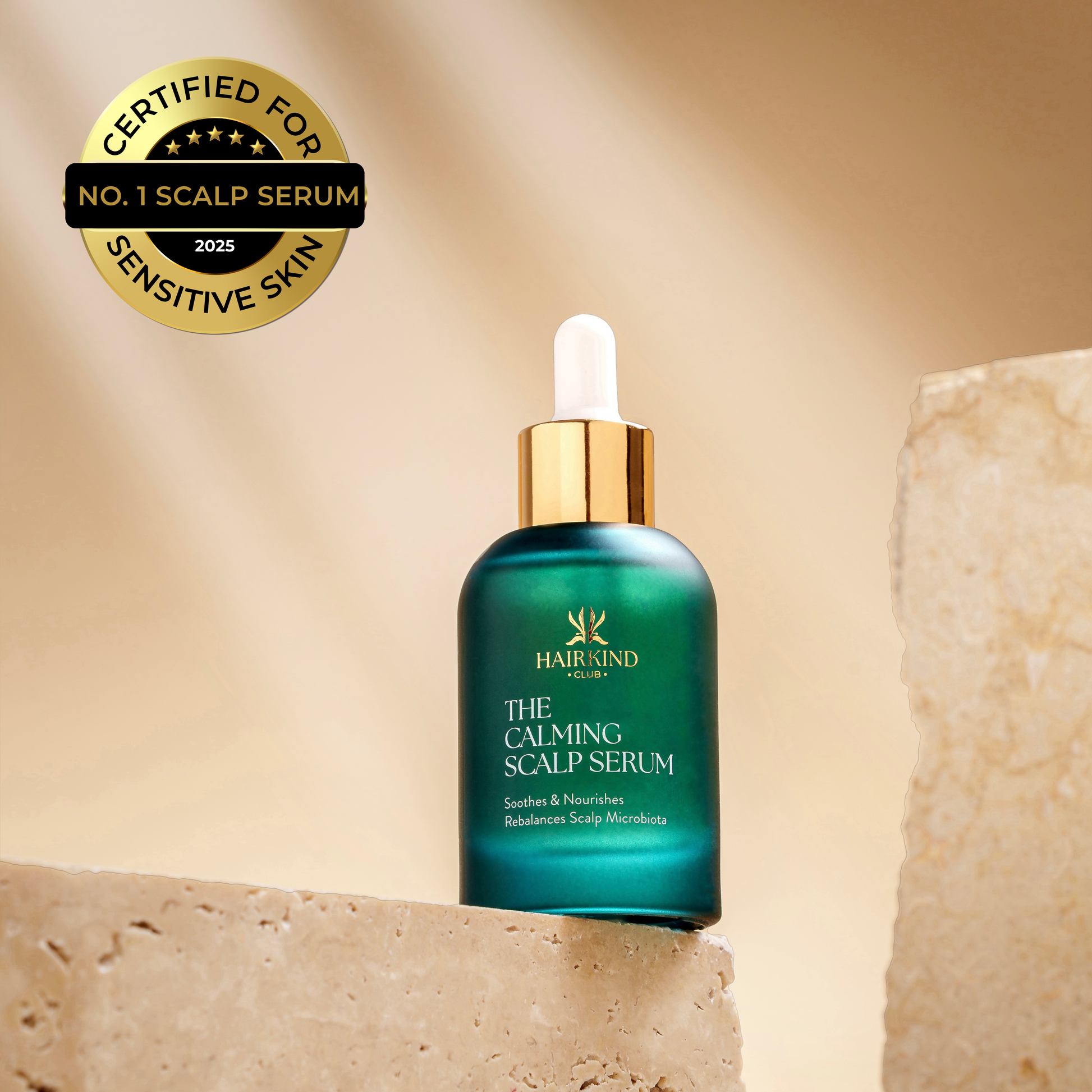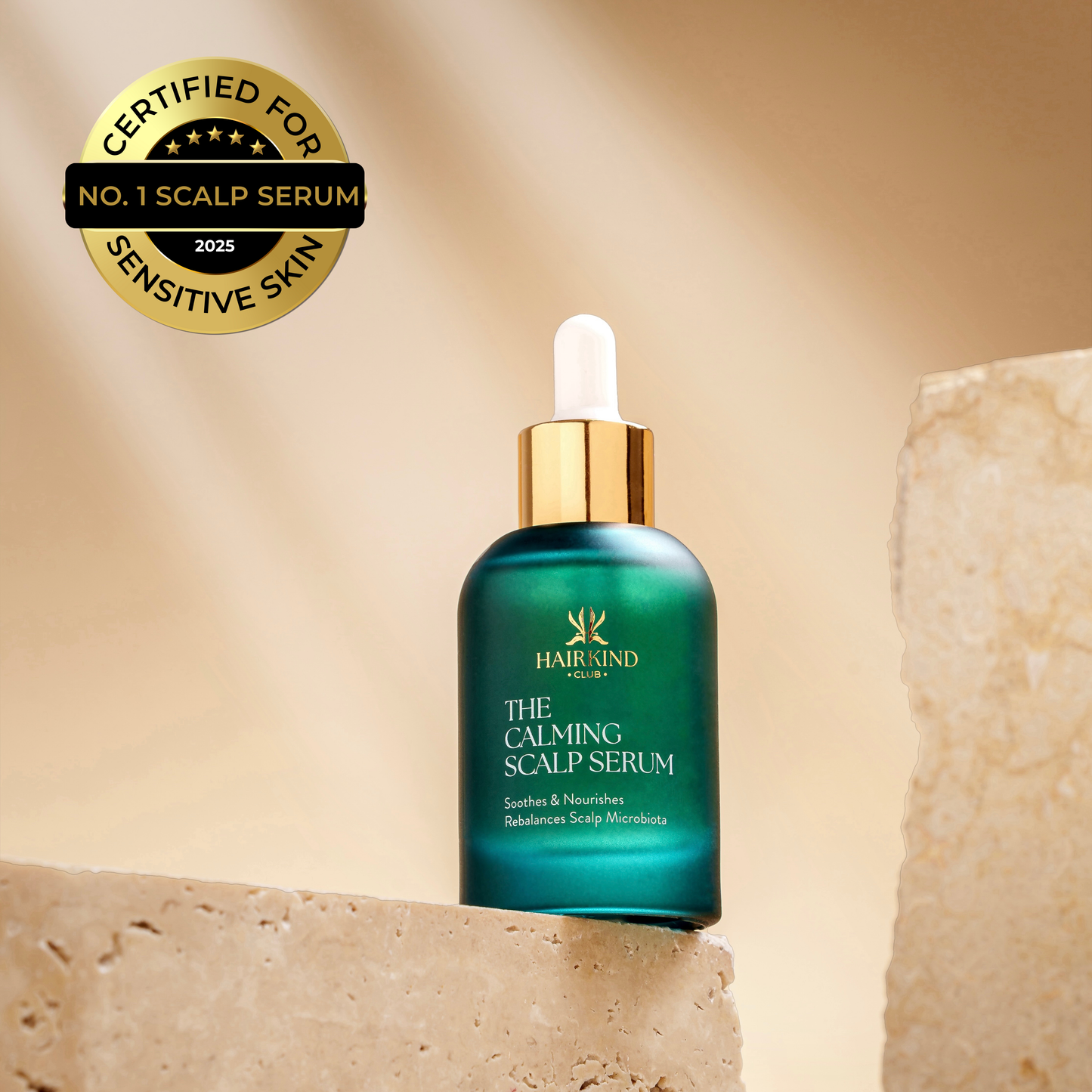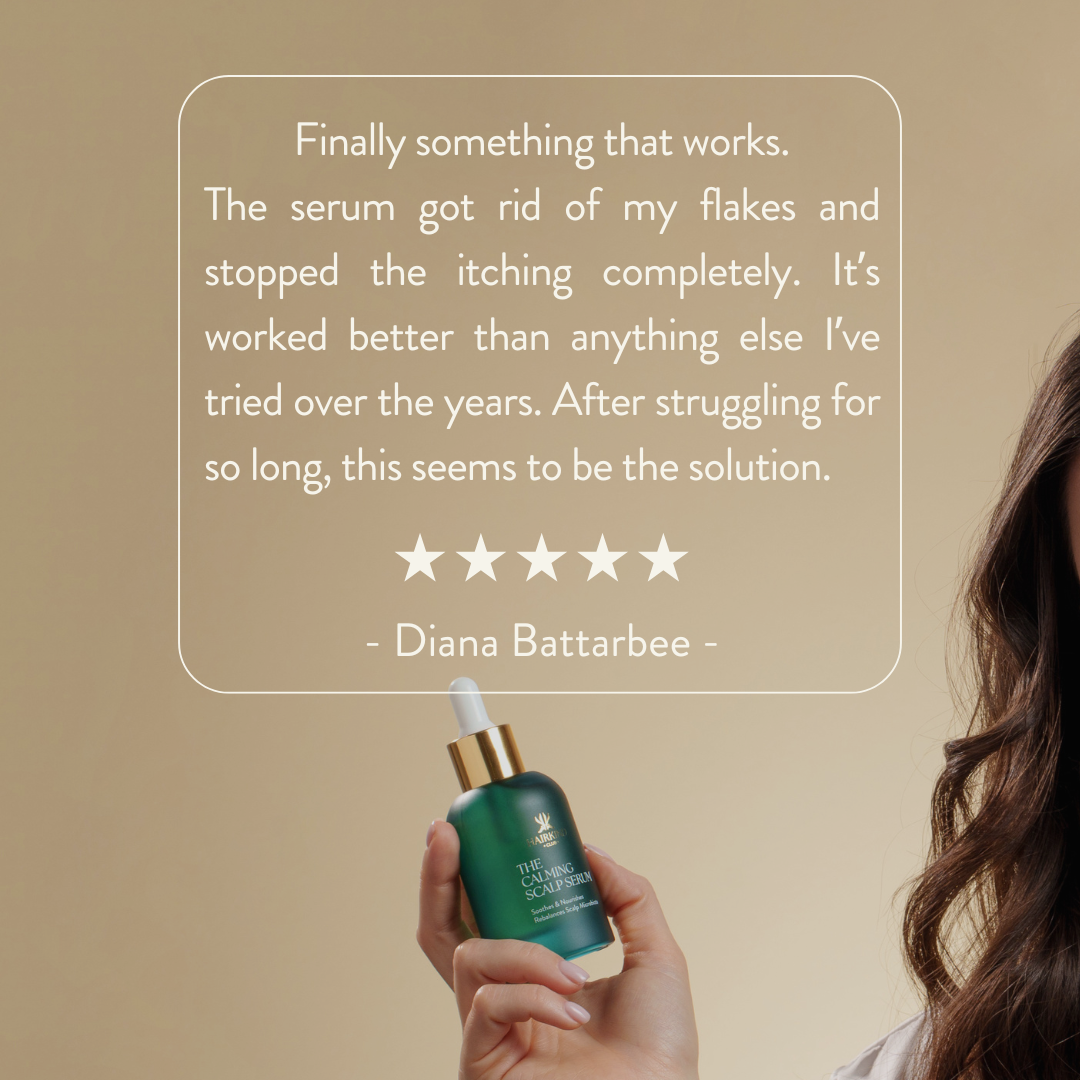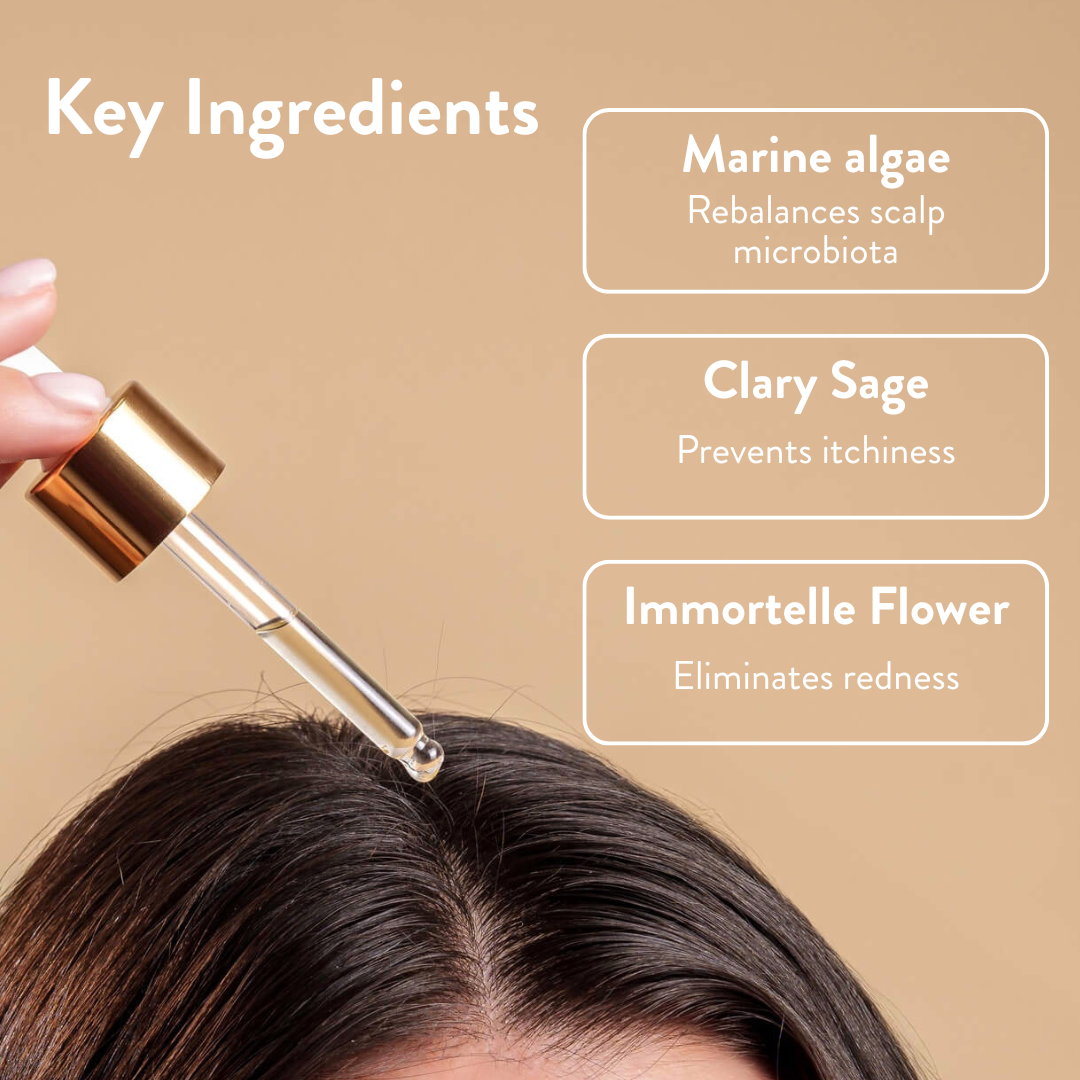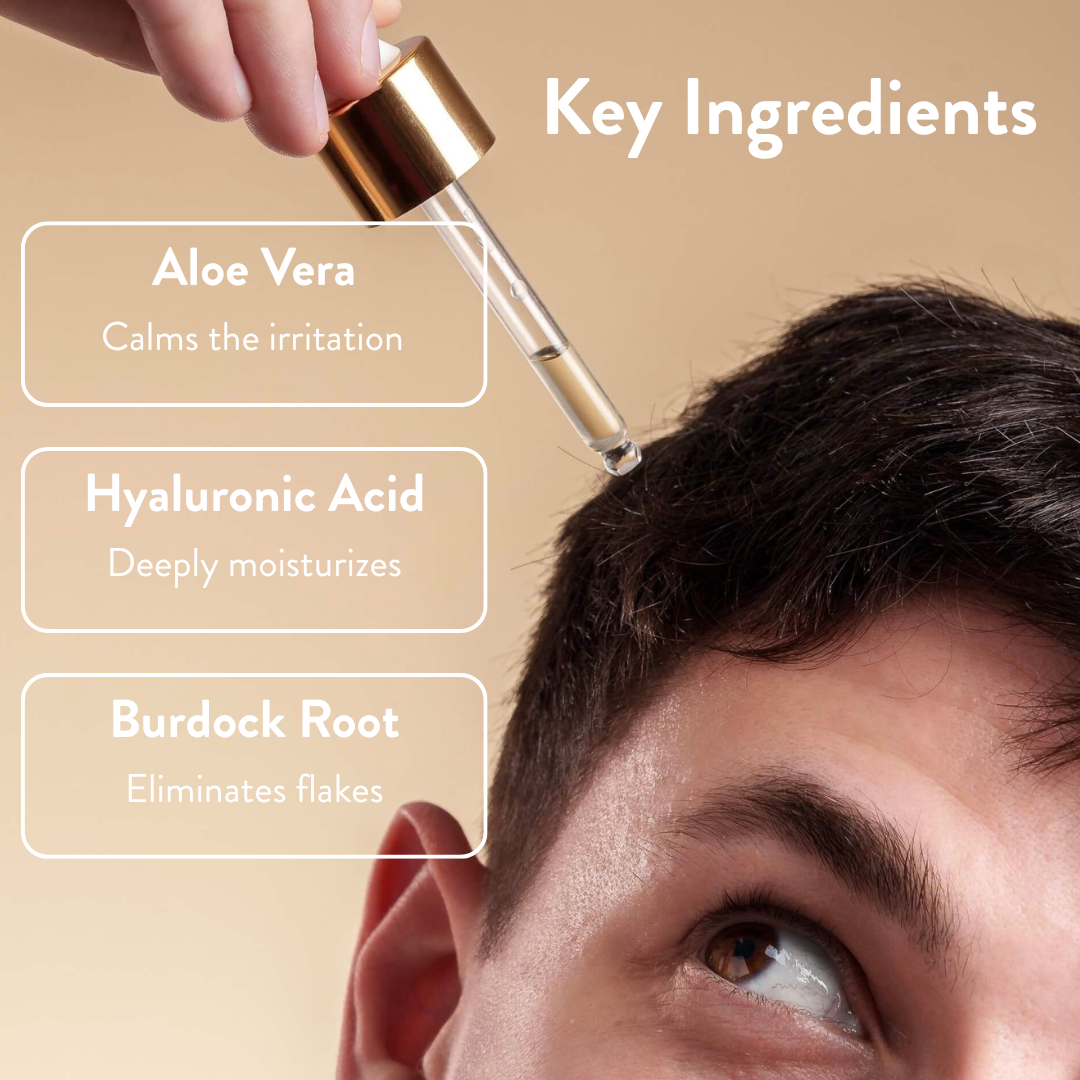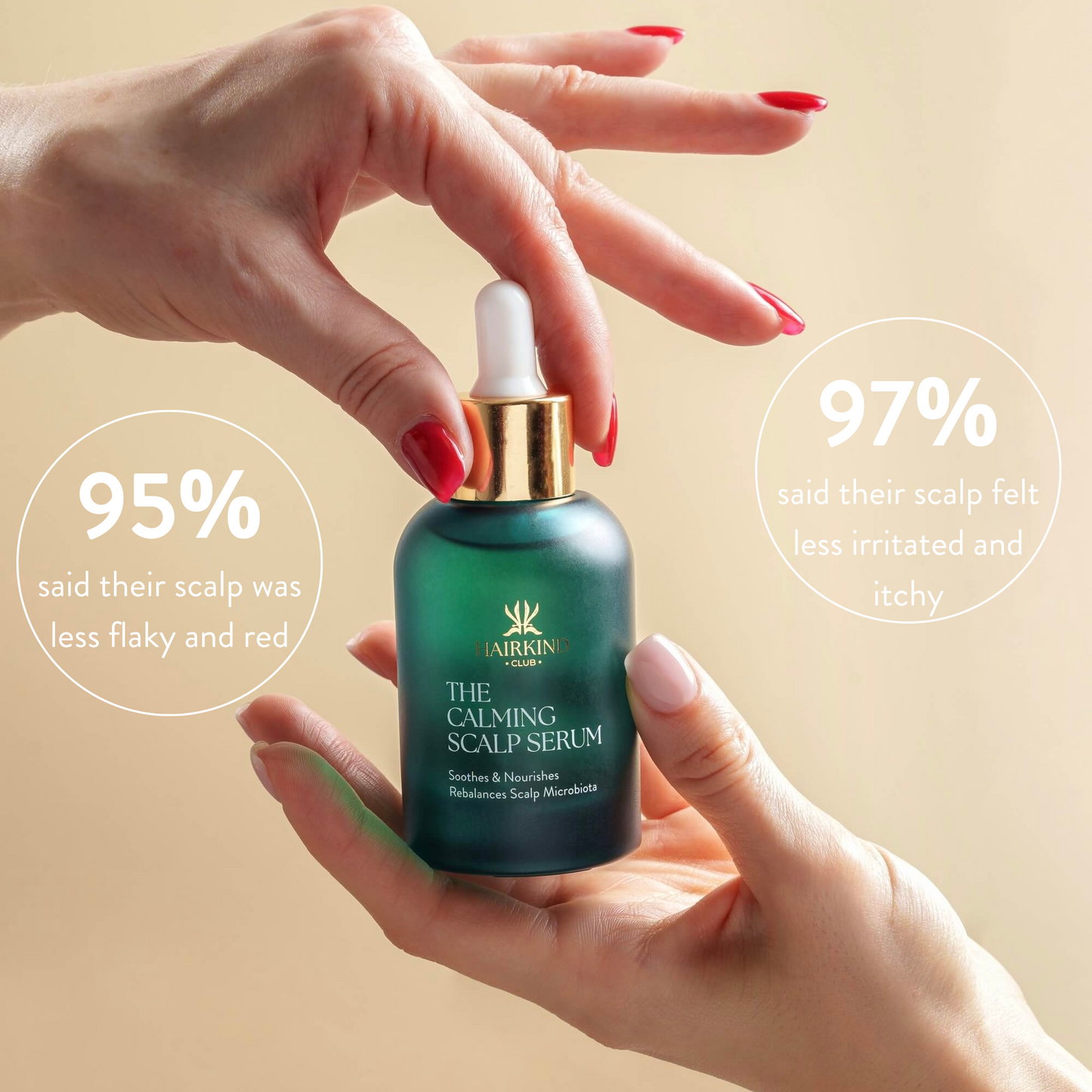We've all been there — running late, hair looking less than fresh and reaching for that trusty can of dry shampoo. It's become a staple in many of our beauty routines, promising to absorb excess oil and extend the life of our blowouts. But have you ever stopped to consider what dry shampoo might be doing to your scalp health, especially if you're already dealing with conditions like dry scalp, seborrheic dermatitis, eczema or psoriasis?
The Dry Shampoo Dilemma
Dry shampoo isn't actually shampoo at all. Most products on the market are essentially oil-absorbing powders delivered via aerosol spray. While they can be a lifesaver in a pinch, regular use without proper cleansing can lead to buildup on the scalp—and for those with sensitive skin conditions, this can spell trouble.
The market is flooded with options. From drugstore favorites to high-end salon brands, dry shampoos come in various formulations:
- Aerosol sprays: The most common type, containing powders and alcohols
- Non-aerosol powders: Applied directly to the roots with a brush or fingers
- Foam dry shampoos: A newer category that feels more like traditional shampoo
- Natural or organic options: Featuring plant-based ingredients

Recent Safety Concerns: Beyond Scalp Irritation
In recent years, safety concerns have emerged beyond just scalp irritation. In 2021, the U.S. Food and Drug Administration (FDA) announced a nationwide recall of numerous dry shampoo products from major brands due to "elevated levels of benzene" detected in dozens of aerosol products.
Benzene is a chemical carcinogen that occurs naturally in crude oil and can form during the manufacturing process. While we're exposed to low levels of benzene daily through various sources (like car emissions and cigarette smoke), concentrated exposure raises legitimate health concerns.
According to toxicology experts, short-term symptoms of high benzene exposure can include dizziness, headaches and irritation, while long-term effects could potentially impact blood cell production or increase cancer risks at very high exposure levels.
The source of contamination in these products was identified as the spray cans' propellant, not the dry shampoo ingredients themselves. This highlights an important consideration: non-aerosol dry shampoo options eliminate this specific risk entirely, making them potentially safer choices for regular use — especially for those with sensitive scalps or existing health concerns.

When Ingredients Become Irritants
For those with scalp conditions, the ingredient list becomes crucial. Many conventional dry shampoos contain potential triggers:
- Alcohol: Can be extremely drying and strip the scalp of natural oils
- Butane and propane: Common propellants in aerosols that can irritate sensitive skin
- Synthetic fragrances: A major trigger for many people with skin sensitivities
- Talc: An absorbent mineral that can cause irritation for some
- Silicones: Create a barrier that can trap debris and prevent moisture from reaching the scalp
These ingredients may exacerbate symptoms in people with:
- Dry scalp: Making flaking and itching worse
- Seborrheic dermatitis: Potentially triggering flare-ups of this inflammatory condition
- Eczema: Adding irritants to already compromised skin
- Psoriasis: Possibly stimulating more rapid cell turnover and plaque formation

The Hidden Dangers for Sensitive Scalps
When you have a scalp condition, the skin barrier is already compromised. Layering on dry shampoo—especially repeatedly without proper cleansing—can create a perfect storm:
- Product buildup: Dry shampoo doesn't clean; it absorbs and masks. The residue can clog follicles and trap bacteria.
- Disrupted microbiome: A healthy scalp has a balanced ecosystem of microorganisms. Dry shampoo can disrupt this balance, potentially worsening conditions like seborrheic dermatitis.
- Moisture barrier damage: Ingredients like alcohol can compromise the skin's natural moisture barrier, leading to increased dryness and irritation.
- Delayed treatment: Masking symptoms with dry shampoo might mean you're not addressing underlying issues that need attention.

Should You Use Dry Shampoo With a Sensitive Scalp?
It's not necessarily all-or-nothing. If you have a scalp condition:
- Limit use: Once a week maximum, not as a regular substitute for washing
- Choose wisely: Look for products specifically formulated for sensitive scalps
- Apply properly: Focus on the hair strands rather than directly on the scalp
- Cleanse thoroughly: Use a gentle, therapeutic shampoo to remove all residue
- Consider format: Non-aerosol options eliminate propellant-related risks entirely
- Ventilate properly: If using aerosol products, ensure good bathroom ventilation and avoid inhaling the spray
- Check recalls: Stay informed about product recalls and safety notices from manufacturers
Better Alternatives for Sensitive Scalps
If traditional dry shampoos are causing problems, consider:
Natural Ingredient-Based Dry Shampoos
- Rice starch or arrowroot-based products: These natural starches absorb oil gently without the harsh chemicals found in conventional products. Look for brands that use these as their primary absorbing agents.
- Oat flour formulations: Oat is known for its soothing properties and can be particularly beneficial for those with eczema or very sensitive skin. Some specialty brands offer oat-based dry shampoos that calm while they cleanse.
- Kaolin clay options: This gentle, mineral-rich clay absorbs excess oil without stripping the scalp. It's particularly good for those with seborrheic dermatitis who need oil control without irritation.
- Colloidal oatmeal blends: More than just regular oats, colloidal oatmeal has anti-inflammatory properties that can actively soothe irritated scalps while absorbing excess oil.
- Tapioca starch products: Another gentle starch that works well for oil absorption without irritating sensitive skin conditions.
- Aloe vera-infused formulas: Some natural brands incorporate aloe vera into their dry shampoo powders for its anti-inflammatory and soothing benefits.
- Tea tree oil options: In appropriate, diluted amounts, tea tree oil can offer antimicrobial benefits that might help those with seborrheic dermatitis or dandruff while controlling oil.
- Bamboo extract blends: Rich in silica, bamboo extract can help strengthen hair while absorbing excess oil, making it a dual-purpose ingredient for those with sensitive scalps.
- Fragrance-free options: Essential for many with sensitive skin conditions, as fragrances (even natural ones) can trigger reactions.
- DIY solutions: Simple options like a tiny amount of cornstarch or arrowroot powder applied with a makeup brush (just be sure to wash it out completely). For added benefits, mix in a small amount of white kaolin clay or colloidal oatmeal.

Maintaining Scalp Health Beyond Dry Shampoo
The occasional use of a gentle dry shampoo isn't likely to cause problems, but maintaining overall scalp health requires a more comprehensive approach:
- Regular, gentle cleansing: Use lukewarm (not hot) water and products formulated for your specific condition
- Scalp treatments: Incorporate specialized treatments like our Calming Scalp Serum, which is specifically formulated for sensitive scalps prone to itching, flakes and redness
- Hydration: Both internal (drinking water) and external (appropriate moisturizing products)
- Diet and stress management: Both can significantly impact scalp conditions
The Bottom Line
Dry shampoo can be a convenient tool in your hair care arsenal, but it shouldn't replace proper scalp care — especially if you're dealing with a skin condition. By understanding the potential risks, choosing products wisely and incorporating therapeutic treatments like our Calming Scalp Serum, you can maintain a healthier balance between convenience and scalp health.
Remember: a healthy scalp is the foundation for healthy hair. Sometimes, taking the extra few minutes to properly cleanse and treat your scalp is the best investment you can make in your overall hair health.




